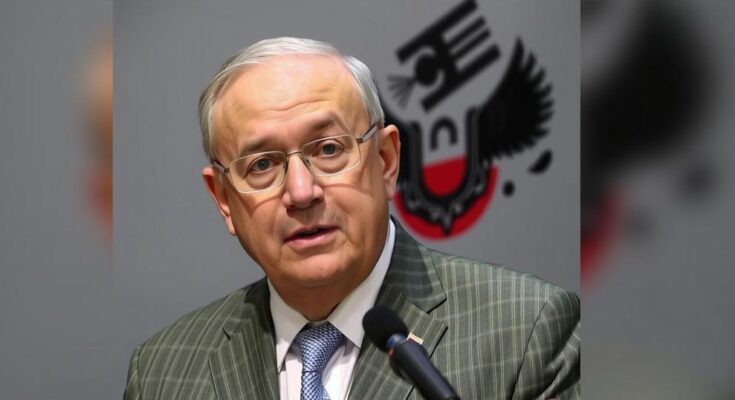Lebanon’s Prime Minister Najib Mikati condemned Israeli airstrikes on Khiam as “treachery,” following an attack shortly after the Lebanese army’s deployment under a ceasefire agreement. Israeli forces resumed hostilities, raising concerns about the ceasefire’s viability. Amnesty International has called for investigations into the airstrikes as potential war crimes. Hezbollah has asserted its readiness to confront ongoing threats to Lebanese sovereignty.
BEIRUT: Caretaker Prime Minister Najib Mikati condemned Israeli airstrikes on the Lebanese town of Khiam, labeling them as acts of “treachery.” This condemnation occurred following a deadly attack that took place less than a day after the Lebanese army began its deployment in collaboration with a recently brokered ceasefire agreement between Israel and Hezbollah. Israeli forces, according to reports, resumed their assaults almost immediately after the Lebanese army entered the region, raising concerns about the effectiveness of the truce negotiated by the United States and France.
The strategic town of Khiam, located just under five kilometers from the Israeli border, has witnessed a significant military presence in the wake of Israel’s occupation during its land operation in southern Lebanon last October. Lebanese soldiers established five positions in Khiam after Israeli forces reportedly withdrew. Prime Minister Mikati emphasized that such aggressions violate commitments made by the United States and France, who facilitated the ceasefire, urging them to take necessary actions against Israeli misconduct.
Mikati stated, “These continued violations are the responsibility of the monitoring committee tasked with supervising the implementation of the ceasefire, which is required to address what happened immediately and firmly and prevent its recurrence.” Meanwhile, Israeli forces have also been observed conducting reconnaissance operations over various Lebanese regions.
Amidst these events, civil defense teams are actively searching for victims in rubble resulting from earlier Israeli airstrikes, which have been described as severe humanitarian violations. Amnesty International criticized these airstrikes, asserting that they could constitute war crimes due to their impact on civilian populations. They urged for the establishment of an independent investigation into these alleged violations.
Hezbollah’s officials have shown resilience in responding to the ongoing situation, reinforcing that there will be no tolerance for occupation. They are prepared to confront perceived threats against Lebanon’s sovereignty, reiterating their commitment to protect the nation’s dignity.
The recent airstrikes in Khiam represent a continuation of hostilities in a region characterized by a fragile ceasefire between Israel and Hezbollah, following prior conflicts. The ceasefire was brokered by the United States and France, aimed at stabilizing the volatile border area. The Lebanese army’s deployment is a response to these recent tensions and aims to reinforce the ceasefire terms. The strategic significance of towns like Khiam and the history of conflict in southern Lebanon shape the current dynamics, complicating efforts for lasting peace. Furthermore, organizations like Amnesty International are raising alarms over potential war crimes committed during these exchanges.
The condemnation from Prime Minister Najib Mikati highlights the increasing tensions and dangers that underscore the fragile ceasefire in southern Lebanon. With accusations of treachery against Israel and calls for international accountability, the situation remains precarious. As Hezbollah maintains a stance of resistance, the potential for escalation looms, necessitating urgent diplomatic intervention to uphold peace and protect civilian lives in the region. The accountability mechanisms for alleged war crimes will also play a crucial role in shaping future engagements.
Original Source: www.arabnews.com




